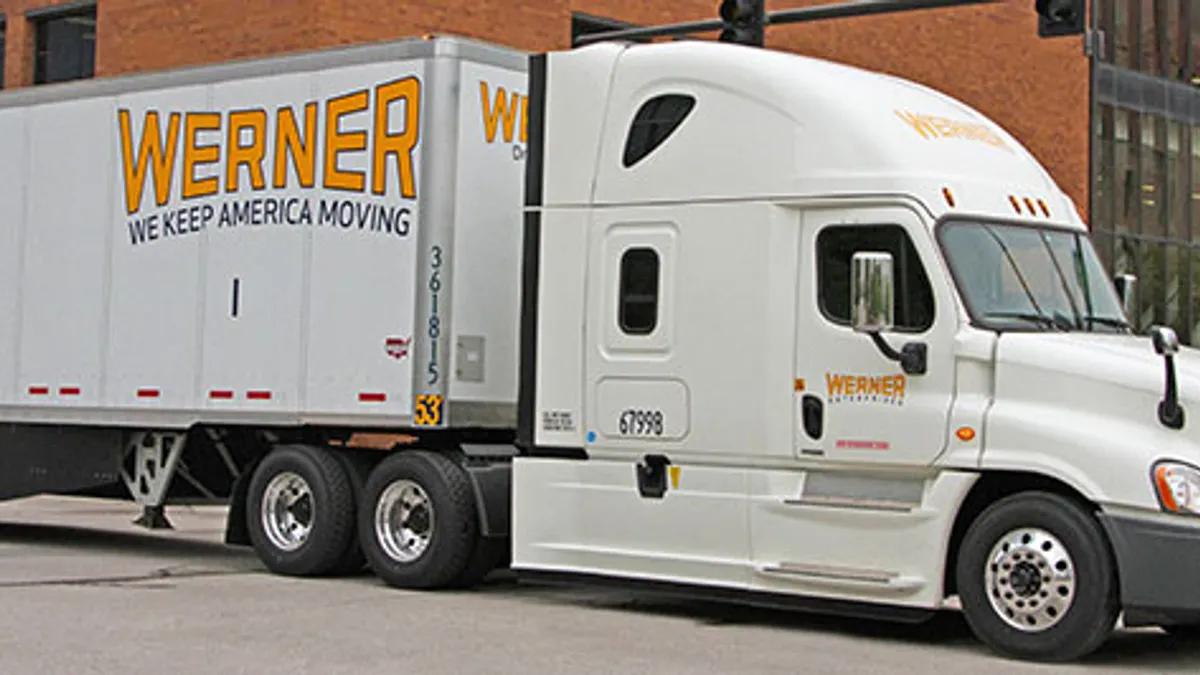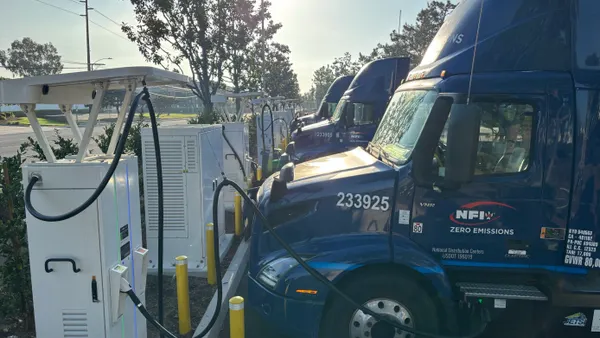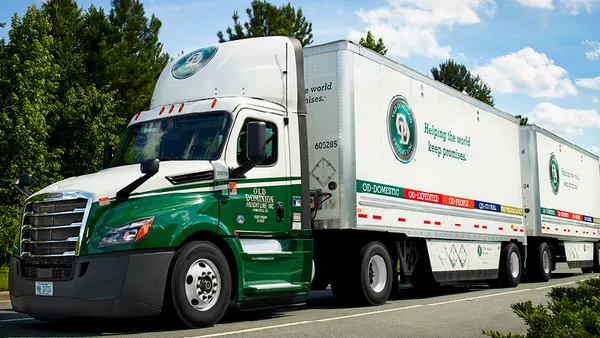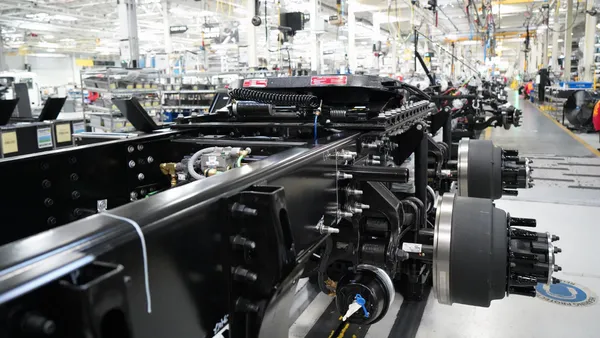Dive Brief:
- TL carrier Werner reported limited COVID-19 impact in Q1, as March panic buying lifted demand for about three weeks. Revenues in March were comparable to March 2019, CEO Derek Leathers said. Q1 revenues were down 1% year over year (YoY) at $592.7 million, according to a Wednesday earnings release. Net income fell 36% YoY to $23 million.
- An accident in January also affected Werner's Q1 results. Werner self-insures for the first $10 million of liability, which it approved during Q1 2020 and resulted in reduced earnings, said Leathers. Werner's insurance and claims expense in Q1 was $13.4 million higher than in the same period last year. But frequency of claims actually went down 14% on a per-mile basis, YoY, Leathers said.
- So far in April, Werner's freight demand has held up "fairly well ... with some expected gradual weakening, given that many parts of the U.S. economy are shut down," company officials said.
Dive Insight:
To know the customer base is to know the exposure to a strong or sudden downturn. Werner officials already had an idea they had strong customers for their TL business, and the company managed to float so well during Q1 that it updated its guidance rather than pull it.
After a pandemic was declared, the management team went back to reassess its clients, Leathers said in a conference call. The company used criteria developed by major credit rating agencies to assess industries' risks. Leathers said Werner classified its 100 largest customers into categories of low risk, moderate risk and high risk.
Werner's top 100 customers account for 85% of revenues. And 62% of its clients are within a wide retail range, from discount retail to food. Overall, the company has protected itself by going to the most sturdy shippers, Leathers said.
"Over the last few years, our strategy has been to focus on the winners in each industry vertical, which naturally aligns us with financially stronger companies," said Leathers.
Food-and-beverage and discount retail gave Werner considerable insulation from the storm, Leathers told investors. Other carriers noted the boost from essential goods in their earnings calls, as well.
J.B. Hunt, one of the first to report earnings, said its food-related business went up 16% during Q1 and agricultural deliveries were "consistent" during the quarter ended March 31, while business regarding office furniture and automotive supplies fell. Knight-Swift, which reported its Q1 earnings last week, said essential goods were 61% of its customer mix before the pandemic, but that share jumped to 72% by early April.
But, like Werner, Knight-Swift noted demand was weakening in April. Load volumes, revenue per loaded mile and miles per tractor were on a decline, Knight-Swift reported. Jim Gattoni, Landstar CEO, said in the company's earnings report last week that the speed of the decreasing industrial business just after Q1 ended were like "nothing experienced in the history of company."
Old Dominion CFO Adam N. Satterfield, however, brought an optimistic tone to the company's earnings call last week.
"We'd like to think that the worst is behind us," he said. "We've kind of gone through this initial period. We're trying to figure out which customers are open, which of our customers' customers are also open so that we're not picking up freight that can't be delivered."











